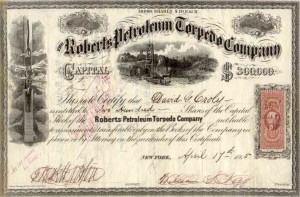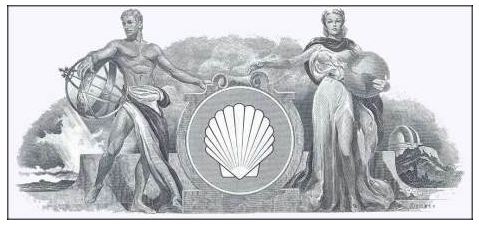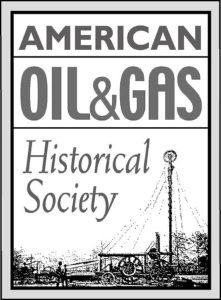Tips for researching and sharing information about old exploration and production companies.
Energy education includes petroleum history and the American Oil & Gas Historical Society offers resources for researching often obscure petroleum company histories. The AOGHS forum about obsolete petroleum company old oil stock certificates is maintained for researchers as a way to share ideas and does not constitute legal advice.
Research Suggestions
Visit our other forums to learn more petroleum history links and ways of sharing research: Oil Families — information about how to donate oilfield-related family heirlooms to oil museums — and Research & Artifacts, a variety of posts and website visitor comments for sharing information.
This page about old oil stocks is maintained for researchers as an informal way to share knowledge and petroleum history. Please note the information contained here is for general information purposes only.

The U.S. petroleum industry’s 1920s-1930s drilling booms produced many quickly formed (and quickly failed) exploration companies. Company executives in a rush to print stock certificates attractive to investors often used this same artwork.
Review the Research: Old Stocks A-Z
To begin your research trek, look for the company in the hundreds of company certificate already researched by AOGHS. Review the updated companies in the historical society’s A-Z listing of research posted on Is my Old Oil Stock worth Anything?
Be sure also to check with the U.S. Securities and Exchange Commission (SEC), which has a post about Old Stock and Bond Certificates.
Stock Q&A Forum
If your certificate’s company is not in the A-Z listing linked above, you are invited to post questions about it in the comments section on our forum for obsolete petroleum company stock certificates: Stock Certificate Q&A Forum. Other visitors to the forum might have the same stock and perhaps can share information. A volunteer AOGHS researcher might also respond.
Need more help? Join AOGHS as an annual supporting member.

Some historically significant petroleum-related certificates have value to collectors, including this example from the company of a Civil War veteran who patented new well fracturing technologies.
Financial References
Please note that the American Oil & Gas Historical Society does not recommend or endorse the forum comments or the following entities, their personnel, or their products or services.
Among the most trusted financial publications — and available at many libraries — is the Directory of Active Stocks and Obsolete Securities published by Financial Information, Inc., Jersey City, New Jersey.
Further, historically popular reference works include Moody’s Industrial Manual and Moody’s OTC Industrial Manual. These research guides offer summaries of company histories, backgrounds, mergers and acquisitions, subsidiaries, principal plants, and properties.
Washington State’s Resources
A good state resource for detailed contact information for these and other resources, see the useful Washington State Department of Financial Institutions website, Oil Stock Certificates.
“Scripophily” — Financial Certificate Collectors
Robert D. Fisher Manual of Valuable & Worthless Securities offers a list of companies whose now worthless securities have been liquidated, or exchanged. Originally available from R.M. Smythe Co., Inc., New York, N.Y., the rights to the manual belong to Scripophily.com, which provides research services through subsidiary Oldcompany.com.

This vignette is from a Shell Oil Company engraved certificate printed by a banknote company and issued in 1977. The certificate’s value to collectors is about $40.
Because the following is a summary (and includes information for articles), the society seeks companies interested in sponsoring additional research.
For certificate collector research, there are “scripophily” companies that offer fee-based answers:
• Did the company fail?
• Is it in business under a new name?
• Was it acquired by another company?
• How do I contact the current company?
• Does the certificate have collector value?
Again, you are invited to submit your query in our Stock Certificate Q&A Forum section — where everyone can share their research. Many posts include little information about the stock certificate or company in question to better share research. Stock certificates have a wealth of information to help your research into “what happened?” online.
Look for a “CUSIP” Number
If you have it, post the stock certificate’s state of incorporation, dates, CUSIP – Committee on Uniform Securities Identification Procedures — number (if available). Also include the company president and any other officers – or any clue could very useful. Without this kind of information, little can be found.
Why are so many companies incorporated in Delaware?
Although all states have general corporation laws, provisions in Delaware law have made the state a preferred legal host for newly forming companies. Among the provisions are simplified procedures; low corporate taxes; and broad powers granted to the corporation.
Delaware-registered companies can do business in other states, hold stocks and bonds of other companies, and conduct mergers. Some provisions also protect shareholders from liability.
Further, a special court, Delaware’s Court of Chancery, rules on corporate law disputes without juries. Today, More than half of all publicly traded companies in the United States incorporated in Delaware.
If you found this information helpful, please support the American Oil & Gas Historical Society.
_______________________
The American Oil & Gas Historical Society (AOGHS) preserves U.S. petroleum history. Please become an AOGHS annual supporter and help maintain this energy education website and expand historical research. For more information, contact bawells@aoghs.org. © 2025 Bruce A. Wells. All rights reserved.
.



